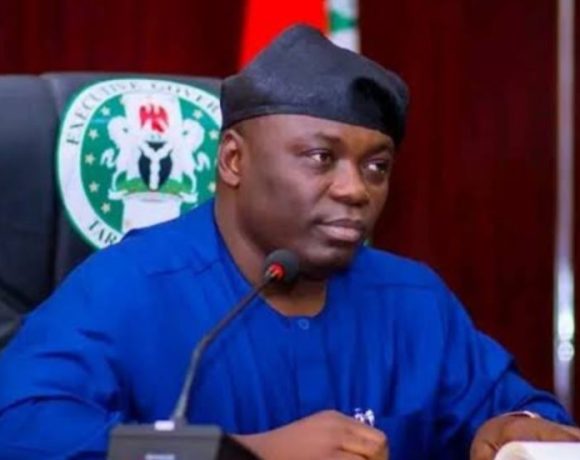Tinubu’s Road Projects in South-East: Minister Umahi Clears the Air, Highlights Ongoing Developments
Minister of Works, Engr. David Umahi, has reassured Nigerians—especially those in the South-East—that the region is receiving its fair share of road infrastructure projects under President Bola Tinubu’s Renewed Hope Agenda.
He made this clarification following a viral article alleging that the South-East zone was excluded from national road plans. Umahi dismissed the report as “misleading and politically motivated,” stressing that no region is being marginalized under the current administration.
Major Projects Underway in the South-East
Umahi explained that the South-East is fully involved in Tinubu’s four major national legacy road projects. One of them—the corridor from Cross River to the FCT via Ebonyi, Benue, Kogi, and Nasarawa—covers over 231.64 km in the South-East alone and is valued at ₦445.8 billion.
“Mr President has already paid ₦108 billion and work is ongoing. The South-East is covered in full fairness,” — Engr. David Umahi.
Other major projects in the region include:
Second Niger Bridge Access Roads
Section 2A (Delta State): ₦146 billion
Section 2B (Anambra State): ₦176 billion
Enugu–Onitsha Road (208 km)
Funded via the MTN Tax Credit Scheme at ₦202 billion
Remaining section by CBC Nig. Ltd: ₦150 billion, with ₦45 billion recently released
Enugu–Port Harcourt Expressway, split into 4 major sections
Enugu–Abakaliki Road, Afikpo–Abia–Imo, Onitsha–Owerri–Aba, Aba–Ikot Ekpene, and Umuahia–Ikot Ekpene Roads
“Mr President is using fair distribution of infrastructure to reunite Nigerians and renew their hope, and only those who open their eyes will see the light of change in Nigeria.”
— Engr. David Umahi, Minister of Works
How Nigerians Can Benefit
Job Opportunities: These massive infrastructure projects are creating direct and indirect employment in construction, engineering, logistics, and local services.
Ease of Movement: Upgraded roads will drastically cut travel time and reduce vehicle wear-and-tear, making transport of goods and people safer and more efficient.
Business Growth: Improved access means better market reach for farmers, traders, and entrepreneurs in South-East communities.
Community Development: Revived federal projects bring in not just roads but also opportunities for local economies to flourish—boosting trade, tourism, and investment.
Reclaiming Old Projects
Umahi revealed that 90% of previously abandoned federal road projects, some dating as far back as 2013, have now been revived and are in progress or completed. He said all zonal directors have been sent back to sites to document both old and new projects across all six geopolitical zones.
This nationwide effort aims to promote fairness, national unity, and transparency, in line with Tinubu’s mission to renew citizens’ hope and rebuild trust in governance.
As Nigerians continue to question fairness in federal allocations, it is important to focus on verified facts. The South-East is receiving substantial attention in road infrastructure, with several key projects already funded and under construction. Residents and leaders are encouraged to take ownership, stay informed, and engage with these developments for communal benefit.











